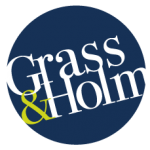Today’s budget was heralded a budget for the small business and in many ways it was. Corporation tax rates were cut, business rates relieved and for the sole trader, NIC was simplified.
On the face of it the budget also heralded improvements for investors.
However the chancellor didn’t get where he is today without raising funds in ways that are not noticed by the individual. His claims to be in surplus by the end of the year are not unfounded as he targeted (quite fairly) the large corporates who have managed over the years to avoid tax.
For those of us at the small end of the market it is worth noting the confirmation of the changes to dividend tax and the changes to loss relief on corporation tax. On top of this the reduced relief on mortgage interest for buy-to-let owners and changes to capital gains tax on the sale of investment properties do leave us wondering how the Government believes it is helping investors and businesses.
Below are some key points in the 2016 Budget. Please do get in touch if you need any further information or have any concerns.
Individuals
The income tax thresholds will be as follows:
| 2016-17 | 2017-18 | |
|---|---|---|
| Personal allowance | £11,000 | £11,500 |
| 20% band | £32,000 | £33,500 |
| 40% band | £107,000 | £105,000 |
| 45% thereafter |
NB those earning over £100,000 will not get the full tax free personal allowance.
National insurance – for the self employed the Class 2 will be abolished from April 2018 and Class 4 will be reformed.
Businesses
Corporation Tax rates will be reduced to 17% from 2020 (currently 20%).
Loss relief will also change. There will be more flexibility to offset carried forward losses within a group; however carried forward losses offset will be restricted to 50% of profits in any one year from April 2017.
Quarterly reporting – where businesses keep digital records they will be able to submit quarterly and apply for pay-as-you-go tax payments to stream tax flow and manage cash flow. The time frame for implementing this is 2018 however there will be a full consultation taking place in 2016.
The VAT threshold will increase to £83,000 (currently £82,000) from April 2016.
Annual Investment Allowances will be £200,000 from April 2016.
From April 2017, small businesses occupying property with a rateable value of less than £12,000 or less will pay no business rates.
Employers
The Employment Allowance will increase from April 2016 from £2,000 to £3,000.
Savings and investments
As previously announced the new Dividend taxation rates were confirmed on dividends over £5,000. These are as follows:
| To 5 April 16 | from 6 April 16 | |
|---|---|---|
| Basic rate (20% band) | 0% | 7.5% |
| Higher rate (40% band) | 25% | 32.5% |
| Additional rate (45% band) | 30.56% | 38.1% |
Personal Savings Allowance (PSA) – Basic rate tax payers (20% band) will allow an annual income of £1,000 of interest tax free (40% – £500, 45% – £Nil).
There will be a new lifetime ISA from April 2017 aimed at the under 40s. This age group will be able to save £4,000 per annum and receive a £1,000 (25%) contribution from the Government up to the age of 50. This account can be used to pay for a first home or drawn down after the age of 60. Withdrawals outside of these limits would incur a clawback and a penalty charge of 5%.
For other ISA savers the annual ISA limit rises from £15,000 per annum to £20,000 from April 2017.
Capital Gains Tax rates will change from April 2016. They will reduce from 18% (basic rate) to 10% and from 28% (higher rate) to 20% on all investments apart from investment properties which will remain at current rates.
Pensions
From April 2016 new retirees will be under the flat rate State Pension Scheme seeing a single payment of £150 made to new pensioners. It is expected that only 45% of those retiring between 2016 and 2020 will receive the full amount (Hargreaves Lansdown).
Also from 2017 people will have to make 35 years worth of NI contributions to be entitled to the full State Pension rather than the current 30 years.
Property
There will be a 3% surcharge on Stamp Duty on buy-to-let properties from April 2016.
There were also changes to Capital Gains Tax on buy-to-let properties which from April 2019 will be due 30 days after the sale of a property rather than at the end of a tax year as is the current situation.
From 2017 changes to tax relief on mortgage interest for buy-to-lets will also be phased in. Tax relief will be restricted to 20% even for higher rate tax payers.
Other
Motoring – Fuel duty was frozen again however there was an increase to Insurance Premium Tax from 9.5% to 10% which will add to the cost of all forms of insurance.
Alcohol and tobacco – beer and cider duty was frozen again. Duty on whiskey and other spirits was also frozen. Excise duties on tobacco will rise by 2% above inflation.
